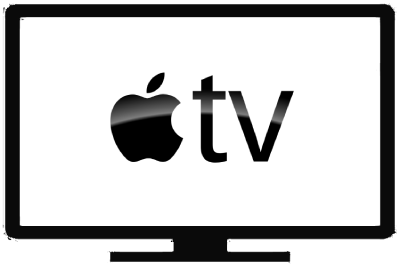Forward Thinking on Covid-19: Lebanon
SUPPORT US and help us keep creating content like this. Become a member of our Patreon community
How does a revolution mobilize against the threat of Covid-19? In Lebanon, activists are bypassing their government’s inadequate response to ensure funds are sent directly to hospitals, refugees, and the Lebanese Red Cross. “We didn’t vote for so we don’t feel like they are our representatives,” says activist Dayna Ash. In this interview, Ash breaks down the people’s response to Covid-19 and the fight for justice in Lebanon. “Losing hope is a privilege we cannot afford,” she says. “We will continue. We will push forward…”
Check out our episode featuring Dayna Ash: From the Creative Frontline of Lebanon’s Revolution.
And for more forward thinking on Covid-19, check out these web extras:
We’re Not All in the Same Boat with Terry McGovern
Lessons From the AIDS Crisis for COVID-19 with Kenyon Farrow
How We Can Use Tools of Mutual Aid to Manage COVID-19 with Ejeris Dixon
About Dayna Ash
Dayna Ash is a cultural activist and founder/director of Haven for Artists in Beirut, Lebanon. In 2019, she was named one of the BBC’s 100 Women for 2019. She is the recipient of the 2020 Woman of Distinction Award from United Nations Commission on the Status of Women.
Transcript
Laura Flanders:
This week’s show features a very special guest: Dayna Ash. She is the cofounder of The Haven for Artists in Beirut, Lebanon. And just two weeks ago, when we spoke in studio, she was talking about the revolution in Lebanon that broke out last October and the way that this creative resistance in the streets is doing for society what the government has completely failed to do. With the arrival of the Covid-19 coronavirus, the rebellion continues, but the context has changed. Here’s the conversation that Dana and I had just a few minutes ago. She was speaking to me this time from New York, where she’s currently kind of trapped.
So you’re in New York and you’re dealing with the shut down, but you’re following what’s happening in Lebanon. What are you hearing from your friends back home?
Dayna Ash:
Well, there’s different things that are going on. So we’ve done a national lockdown in Lebanon, and it was actually mostly pushed by the revolutionaries themselves. They started doing campaigning to get people to stay home. They pushed for it as much as possible. But about two days ago I think was when the prime minister actually did call for a lockdown. He still hasn’t called for a national emergency. As we know, up until around the 18th, there were still planes coming in from highly affected areas all over the world. We’re still getting planes coming in from Milan, we’re still getting planes coming in from Iran up until the 18th of March, which was just about 4 or 5 days ago. So that was another thing that the revolutionaries also pushed for, which was just to shut down at least the highly infected areas coming into Lebanon. So we have 267 confirmed cases in Lebanon, 8 of which are recovered, and 4 of which are confirmed deaths. The Lebanese Red Cross is pretty much doing amazing work. Local activists and independent activists have been requesting that people do not donate to the government, just because there hasn’t been that build of trust yet. We didn’t vote for them, so we also don’t feel like they’re our representatives so much as representatives that were placed there. And not much has changed internally as far as governmental structure for us to start having trust. So everyone is requesting that it goes directly to families in need, directly to the Lebanese Red Cross, directly to hospitals that are currently taking in corona cases. We did have a few politicians and banks promise to donate, which is fantastic because they’re kind of giving back our money, which was one of our jokes of, great, now you’ve given us 600,000 back, but wait for the other 50 million. So we’re just kind of trying as best we can to make sure the health of our citizens and civilians are, to the best of our ability, getting the funds they require. Our doctors and our hospitals are understaffed. They don’t have enough support, and they don’t have enough ventilators or any of the things they require as far as medical equipment they need to continue to make sure the virus and people does not expand. The Lebanese Red Cross posted something where it said every single case of corona required $836. But 836 times 267 times 447 responses a day gets a little costly.
Laura Flanders:
And is that covering refugees as well, no?
Dayna Ash:
It’s covering anyone that’s hit with corona, and the sad thing right now is trying to get the government to understand that the refugees are a part of our society and that they are living in our country, therefore it is our responsibility to make sure they are safe and are not contaminated. Especially when they don’t have access to clean water and they don’t have access to the things that is necessary for any human being to live a dignified life. So, there are activists pushing for that as well and trying to ensure that their support gets there. But, in the end, right now with– we’re getting tickets for going outside. A lot of people are just trying to maneuver around this as much as possible. They tell us, we can’t open our stores, and if we do, we get a ticket, but, at the same time, if we don’t, we don’t eat. So it’s kind of this catch-22 that the government has put us in and made it seem like they’re doing this for our own good, when, in fact, they’re not doing enough to ensure that we stay safe. You know, if we do stay indoors.
Laura Flanders:
So what’s happening to your creative revolution? The one we talked about on the show?
Dayna Ash:
Well, we’re still functioning. Everybody’s still working. It’s just our efforts have shifted towards making sure everybody stays home, stays safe, knows what they need to do to stay hygienic to make sure that they don’t get easily infected, that they don’t pass on this virus, and that they don’t infect anybody who is vulnerable within their families and within their communities. Of course, the issue in Lebanon is the economic crisis. A lot of people cannot afford to stay home. I believe quarantine is also a form of privilege. You know, being able to stock up on food and not going to work and being able to still have electricity when you can’t pay for your electricity bill, which is also another thing that we found extremely funny. We got a bunch of electricity bills in Lebanon during quarantine. So it’s like, OK, how do you expect people to pay for this? And instead of having our government go out and say, OK, we will suspend, let’s say, payments to electrical, you know anything that is a public institution, we’ll suspend these payments, we’ll suspend these taxes. Instead, they put more money into helicopters to go around the cities and the country saying stay home. Instead of doing that, a lot of people have revolted and have rebelled in the sense of, well, if I stay home I can’t feed my children. So, our MPs and everybody has been called and requested by activists to relinquish their salaries, and their salaries, because they don’t need it, they have millions of dollars, that they give their $8,000 salary to hospitals and people in need. I believe only 4 MPs have said they would, but we haven’t actually seen them do it, out of 128. So we have this kind of conflict that we’re trying to push them to take responsibility for A, the fact that they’re the only ones still getting salaries and we are still people who are not getting paid, we’re getting locked at home and we cannot pay for our basic services that they’re still demanding for us to pay.
Laura Flanders:
So very quickly, with respect to your rebellion in the streets, your revolution in the streets, what happens to that? If so much of the emphasis in our conversation is on people coming into the streets, and now there’s a no one in the streets order…
Dayna Ash:
Well, I mean, it’s interesting because our shift has always been, I always say, activists, civil society members, artists, all of us have taken it upon ourselves to fill in the lack and the void that the government has not filled, whether it be in services or assistance or aid or any of that. It’s always been NGOs, it’s always been activists, it’s always been civil society, and we’ve always tried to pick up the slack, but frankly, the slack has been… us doing the government’s job. And that’s what it’s continued into, but now, it’s become every citizen’s responsibility. And they’re doing it so well. They’re taking care of each other, there’s so many independent activists and people just from around the region that are younger, that are saying no to older people, stay home. They’re going around there, just delivering food. They’re sanitizing the food, they help the elderly that are stuck at home and can’t function. So there’s more and more kind of initiatives that have sprouted out in this that have just shown the extent of the lack that the government has and how much we want to fill that.
Laura Flanders:
So, the very thing that we talked about, about how the rebellion was, in effect, creating a society in a vacuum is continuing.
Dayna Ash:
Big time. Big time. And more so there across borders. It’s no longer about me helping just the elderly in my neighborhood, it’s about making sure that no elderly person, no one that is vulnerable to this virus gets afflicted simply because they can’t get their groceries.
Laura Flanders:
Do you think that you will come out of this, the revolutionary movement in Lebanon will come out of the Covid crisis stronger than you might have otherwise, or are you afraid that the military role right now of containing control, over containing control, will make it harder for the rebellion to continue?
Dayna Ash:
Well, there’s a joke that goes around right now, especially with the activists that we’re involved in closing roads back then where the military and the riot police would come by force and open these roads, and now they themselves are closing the roads, so we’re saying thanks for giving us a break. We’ll be right back to those roads as soon as the virus is under control and is contained and people aren’t, of course, at risk of it anymore. If anything, what corona did was kind of re-reinforce how much we need to revolt, how much of these things are lacking: our healthcare, our support systems, our social welfare, you know, pensions for the elderly, being able to pay a ridiculous amount of taxes with nothing in return. It’s just made people more angry now because they’re stuck at home and they’re still paying
Laura Flaners:
So, in a way, your revolutionary movement’s put in pretty good stead in this moment.
Dayna Ash:
I hope so, I hope so. I mean, we’re all really, we will not lose hope. It’s not something we can lose. It’s not an option for us. Losing hope is a privilege that we cannot afford. We will continue, we will push forward, and whenever this crisis is done, we’ll deal with the next crisis. Lebanon has had, I believe, six crises in a row, so when we get to number 7, I’m sure we’ll be stronger and more stable.
Laura Flanders:
I’ve heard that it’s a magic number, Dayna.
Dayna Ash:
Me too.
Laura Flanders:
Alright, I’m going to let you go.
Dayna Ash:
Have a wonderful day, Laura.

















